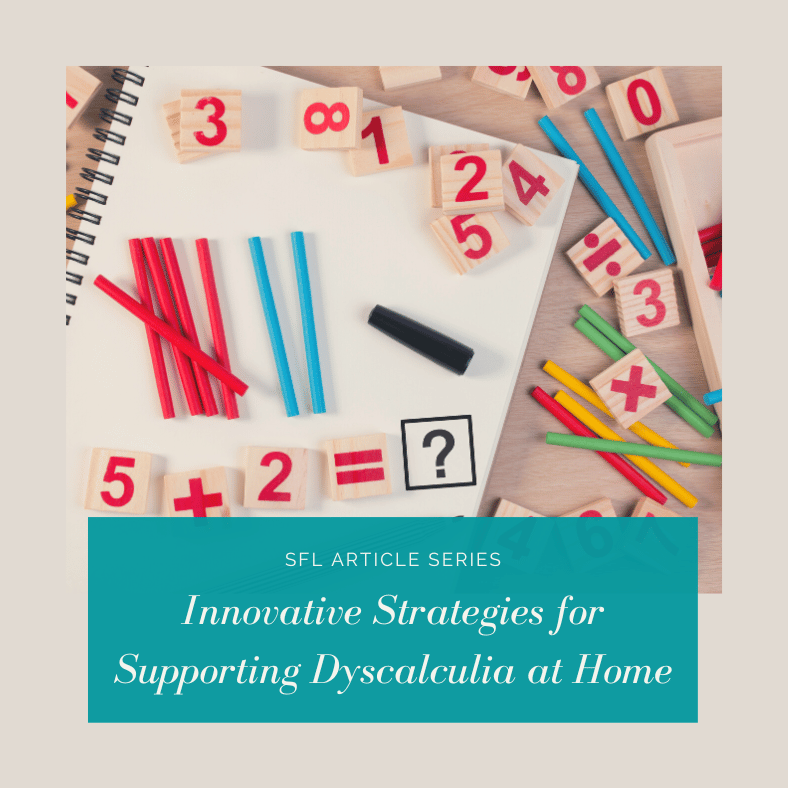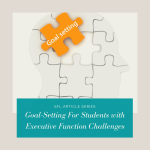No products in the cart.

Greetings, dear parents! If you’re reading this, chances are you have a child who has been diagnosed with dyscalculia or shows symptoms of it. As an educational therapist and researcher, I understand how this learning disorder can be challenging not only for your child but also for you. But don’t worry, there’s good news. The latest research reveals some promising strategies to help your child overcome these difficulties right at home. Let’s dive in!
Understanding Dyscalculia
Before we embark on the journey of supporting our young mathematicians, let’s briefly explore what dyscalculia entails. Dyscalculia is a learning difference that impacts a child’s ability to understand and manipulate mathematical concepts. It goes beyond mere difficulty with numbers; it affects the foundation of mathematical understanding.
Strategies for Supporting Dyscalculia at Home
Make Math Real
Help dyscalculic children by making math tangible and relevant. Incorporate it into daily activities like baking cookies or planning a family outing to enhance their understanding. Shopping can also be an opportunity to practice addition and subtraction. Here are some ideas for how to make math come to life!
Embrace Multi-Sensory Learning
Scientific research shows that multisensory learning is effective for students with dyscalculia. Engage your child’s senses with hands-on activities, real-world examples, and visual aids to make math more tangible.
The Ordinal Value of Numbers: A Fresh Perspective
Recent studies have started to focus on the ordinal value of numbers – their position in a counting sequence. This approach helps children understand the concept of ‘less than’ and ‘more than’, thereby improving their number sense. You can use everyday items like toys or fruits to demonstrate this concept.
Embrace Technology: Digital Tools To The Rescue
Incorporating technology in learning can transform math education, making it more fun and engaging. Specialized apps and digital tools for dyscalculia help children learn math through interactive games and exercises, reinforcing important concepts.
Encourage a Growth Mindset
Nurture a growth mindset in your child by creating a positive environment where math is enjoyable. Prioritize effort over perfection, celebrate progress, and share the joy of problem-solving. Your positive attitude towards math at home boosts their confidence.
Parent-Teacher Partnership: A Winning Team
A strong partnership between you and your child’s teacher is crucial. Regular communication will ensure that the strategies used at home align with those used in school. This will provide a consistent learning environment for your child, enhancing their progress.
Partnering With Professionals
While these home-based strategies are beneficial, remember that professional help can provide targeted support tailored to your child’s unique needs. Educational therapists and clinicians, like those at Strategies for Learning, are skilled in developing personalized learning strategies that cater to each child’s strengths and weaknesses.
Supporting Dyscalculia at Home at your own Pace
Every child learns at their own pace. Stay patient, encouraging, and explore different strategies. Helping a child with dyscalculia is challenging but an opportunity to bond and watch them grow. Stay tuned for more educational tips and strategies!
Written by Susan Ardila, M.A. Math Education
Related Articles
Looking for Academic Support and other Educational Services?
You can schedule a free initial consultation to learn more about our services. We will listen to your concerns, answer any questions, learn about the student’s needs, and help guide you through our new student intake process.






